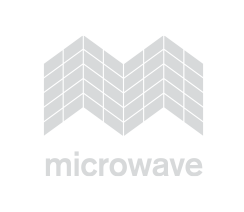

In this talk Shelly will share observations from the wild of improvising with and through algorithms. She describes a number of performance systems which explore possible synergies between the dynamics of improvisation in music ensembles which use network technology to exchange musical and social data, and the dynamics of online social networking which is fundamentally mediated by algorithms and interface design. The pieces discussed explore the dynamics of human interaction when data collection and algorithms are used to modify or moderate this interaction, and algorithms subvert or enable particular power-dynamics. This critical approach to algorithmically mediating improvised performance feeds into a live coding performance practice which acknowledges and highlights human error and failure. The talk will be followed by a performance of her work Flow (2015-16) which uses live EEG data to disrupt my live coding performance.
是次演講結雪梨會分享她對即興數字創作的觀察;她會談及一系列由網絡科技與即興音樂互動之間所產生的協同效應演出系統,以及由數字與介面設計所影響的線上社交網絡及社交數據。她將透過這些作品探索由數字/數據所影響的人與人之間的互動,而這些數字甚至可以推翻或加強這些互動。這些即時編碼演出具批判性地指涉現場,著眼點落在人類所犯的錯與失誤。是次演講包括她2015-16年的作品《流》的現場演出,透過使用即時EEG數據干擾其現場編碼演出。

Shelly Knotts produces live-coded and network music performances and projects which explore aspects of code, data and collaboration in improvisation. She is currently based in Melbourne, Australia. She performs internationally, collaborating with computers and other humans.
She is currently a Research Fellow at SensiLab, Monash University working on Improvisational Interfaces investigating the use of artificial intelligence in improvisation. In 2017 she was Artist-in-Residence at School of Chemistry, Newcastle University working on the project Molecular Soundscapes, investigating the potential of sonification in molecular dynamics and drug design research. She studied for a PhD in Live Computer Music at Durham University with a focus on collaboration in Network Music.
Her work is published in Leonardo Music Journal, and on Chordpunch and Fractal Meat record labels. She has received commissions and residencies from national funders such as Performing Rights Society for Music Foundation and Sound and Music. In 2017 she was a winner of PRSF The Oram Awards for innovation in sound and music.
As well as performing at numerous Algoraves and Live Coding events, past collaborations include BiLE (Birmingham Laptop Ensemble), and uiaesk! (live coding duo with Holger Ballweg). Current collaborative projects include algo-pop duo ALGOBABEZ (with Joanne Armitage), OFFAL (Orchestra For Females And Laptops), and live coding performance [Sisesta Pealkiri] with Alo Allik.
結雪梨,現居澳大利亞墨爾本,製作現場編碼及網絡音樂表演項目以探討即時演繹中的代碼、數據和協作方式 。 她參與多項國際演出,並與電腦和其他人合作。
她目前為莫尼什大學SensiLab的研究員,研究即興介面,調查人工智慧在即興演奏中的應用。2017年她擔任紐卡斯爾大學化學學院的駐院藝術家,參與分子聲音工作,研究分子動力學和藥物設計研究中超聲處理的潛力。她在達勒姆大學獲得現場計算機音樂博士學位,專注硏究網絡音樂合作。
她的作品發表於Leonardo Music Journal,以及Chordpunch和Fractal Meat唱片公司。她得到多個國家的資助團體的支持及駐村藝術家邀請,包括Performing Rights Society for Music Foundation 和 Sound and Music等。2017年她獲得Sound and Music 的PRSF The Oram Awards創新獎。
除了曾於許多的Algoraves和Live Coding活動中演出,她亦曾與多個團體合作,包括BiLE(伯明罕筆記本電腦合奏)和uiaesk! (Holger Ballweg的現場編碼二重奏)。目前的合作項目包括ALGOBABEZ(與Joanne Armitage合作)、OFFAL(Orchestra For Females And Laptops),和Alo Allik的現場編碼演出[Sisesta Pealkiri]。
Flow (2015-16)
Flow is a solo live coding performance that explores and subverts aspects of cognitive flow and virtuosity in Live Coding.
At the beginning of the performance an algorithm running in audio-programming language SuperCollider generates and runs a large number of live codable snippets of code which become the starting sound/code material for the piece. The performer is only able to view and edit one code snippet at a time, which changes automatically to a different random code snippet at regular time intervals.
As the performer live codes, they use a commercial EEG device to track their own concentration and engagement with the performance. Their concentration levels extend or subtract the time intervals that a window is available for.
In this way the system either enforces or subverts engagement by distracting the performer with fast code availability changes when they are highly engaged and elongating the time they spend with a single snippet of code when they are less engaged.
The system thus creates a narrative that relates to the cognitive flow of the performer as well as their interaction with the system and code. The performer's impact on the musical output depends on their ability to quickly interpret and edit code under time and concentration pressures.
Live visuals represent the engagement levels of the performer, their physical action of typing, and the editing of code, giving the audience insight into how the performer is both physically and cognitively interacting with the code.
The sound is projected in multichannel with the sounds relating to each code snippet equally spaced in the soundfield to aid the performer and audience in relating edits to code to changes in sound. Flow was developed during a collaborative residency with Digital Media Labs, Barrow-in-Furness, UK in 2015.
流 (2015-16)
《流》是一種個人的實時編碼表演,可以在即時編碼中探索和顛覆認知流程和技巧。在演出開始時,由音頻編程語言SuperCollider運算的算法衍生及運行大量的可編碼的代碼片段,並以之成為作品起始的聲音/代碼材料。演出者只能每次查看及編輯一個代碼段,並以固定的時間間隔自動更改為不同的隨機代碼段。
作為實時編碼演出者,他們使用商業EEG設備跟踪自己的集中度和參與性,他們的集中水平可以延長或減短時間間隔。以這種形式進行,當系統高度參與時,系統可以通過分散代碼可用性更改的方式來強製或顛覆參與,而當他們參與度較低時,可以使用單個代碼段來消遣時間。因此,該系統創建了與執行者的認知流程以及它們與系統和代碼的交互相關的敘述。演出者對音樂輸出的影響取決於他們在時間和濃度壓力下快速解讀和編輯代碼的能力。
現場視效代表演出者的參與水平,打字的身體動作和代碼編輯,讓觀眾深入了解演出者的身體與認知方面是如何代碼的互動。聲音在多聲道中投射,聲音與聲場中相等間隔的每個代碼片段相關聯,以幫助演出者與觀眾將編碼與聲音的更改相關聯。
《流》在2015年在英國Barrow-in-Furness數字媒體實驗室的合作駐村計劃中開發。
